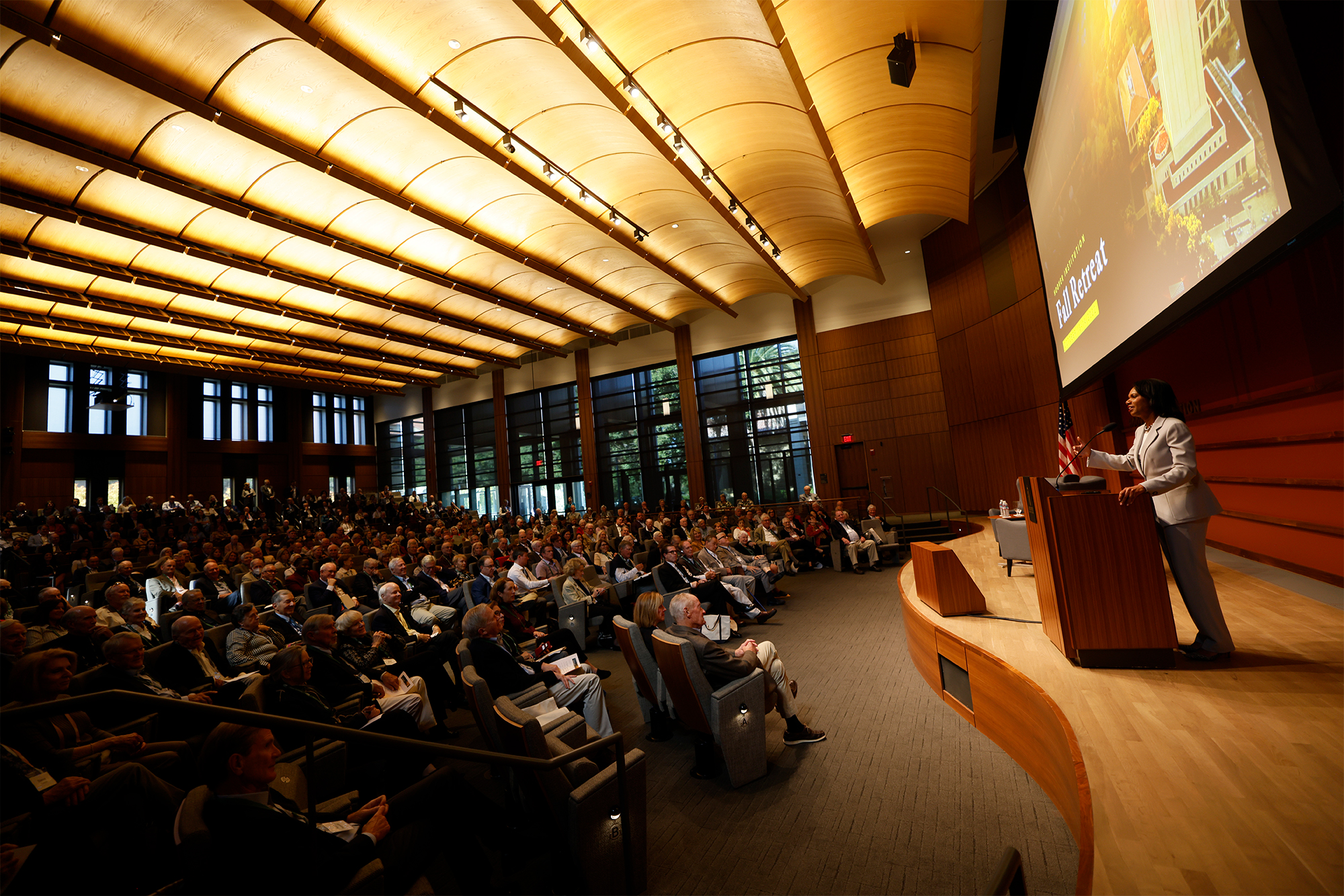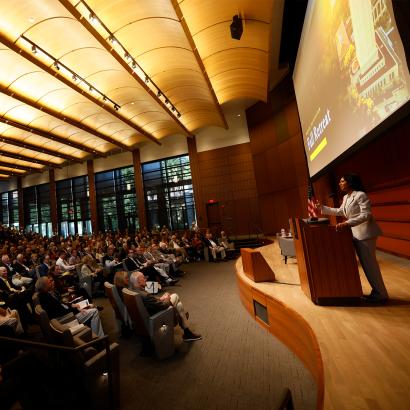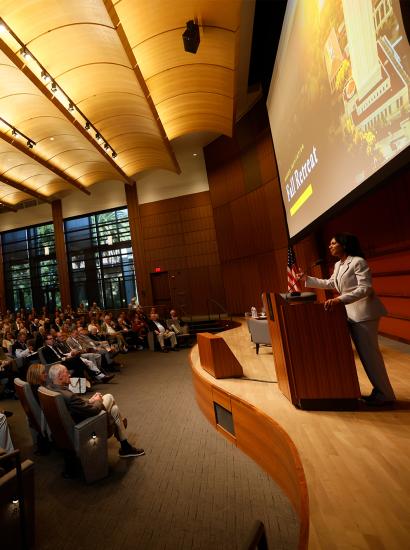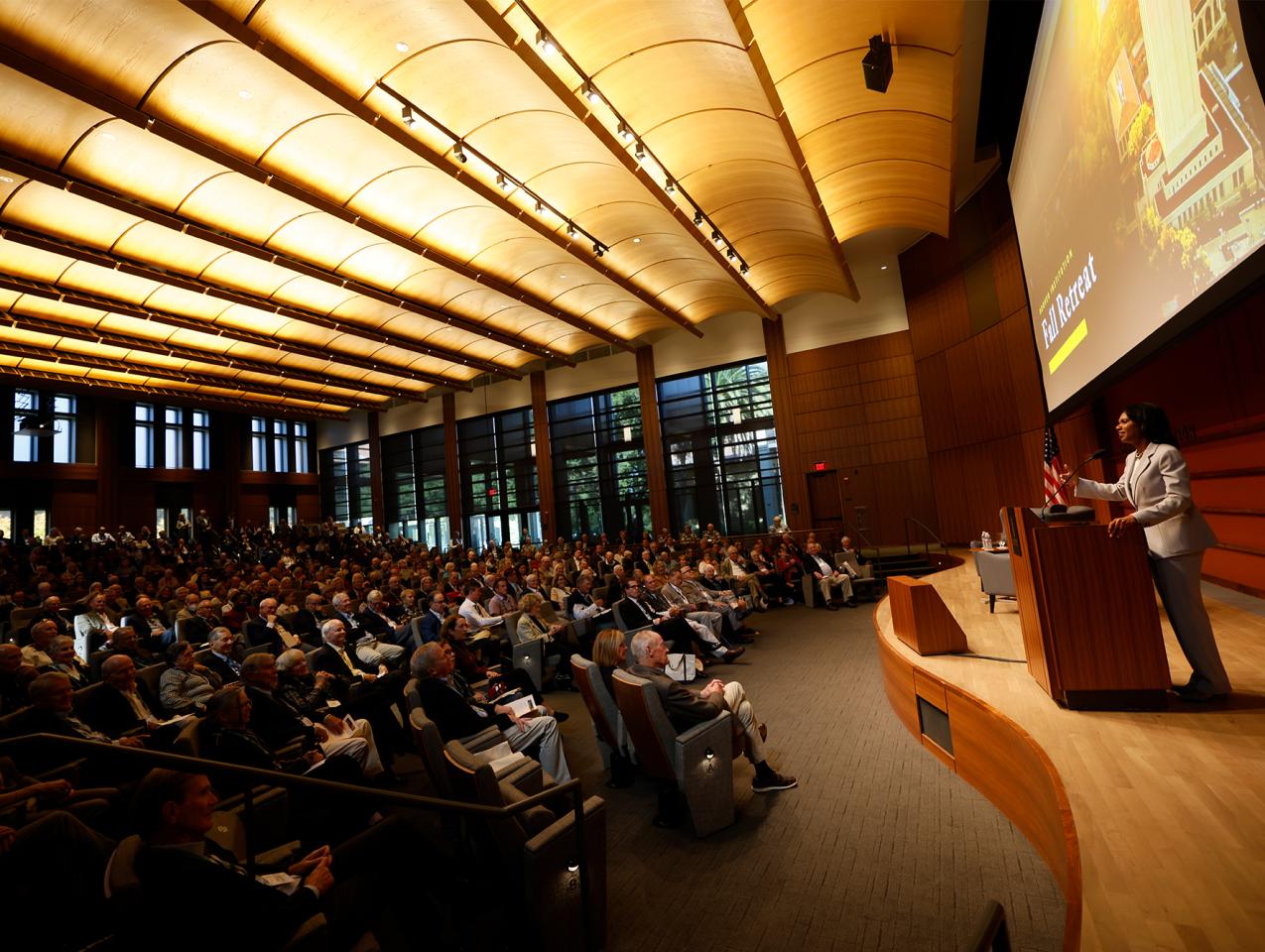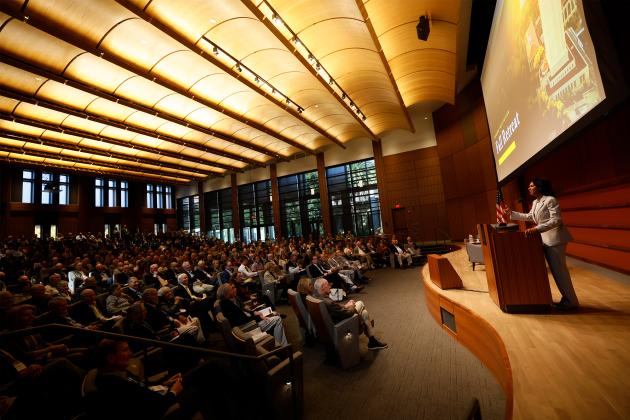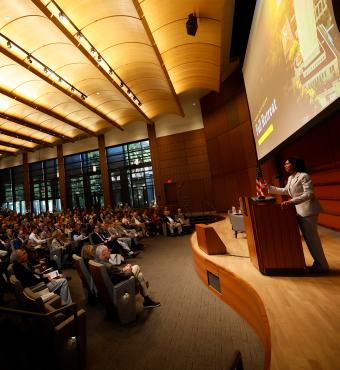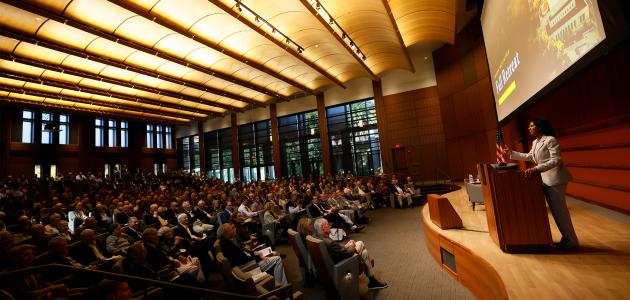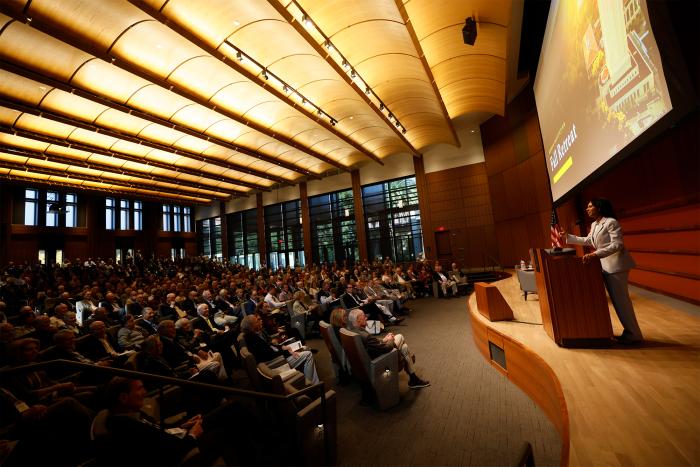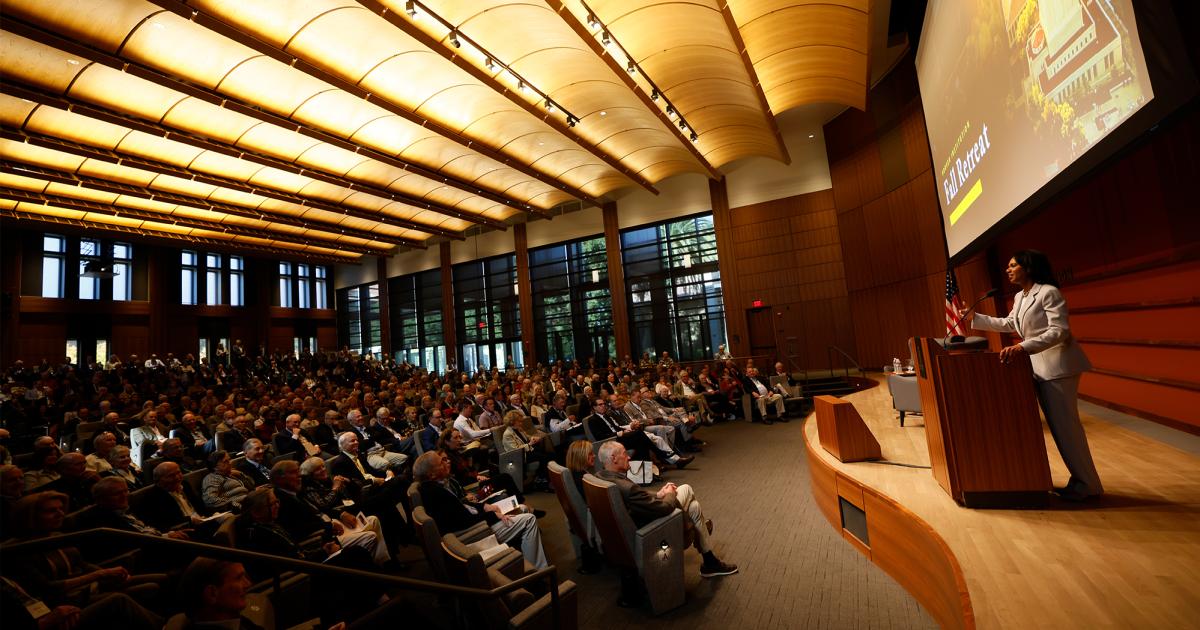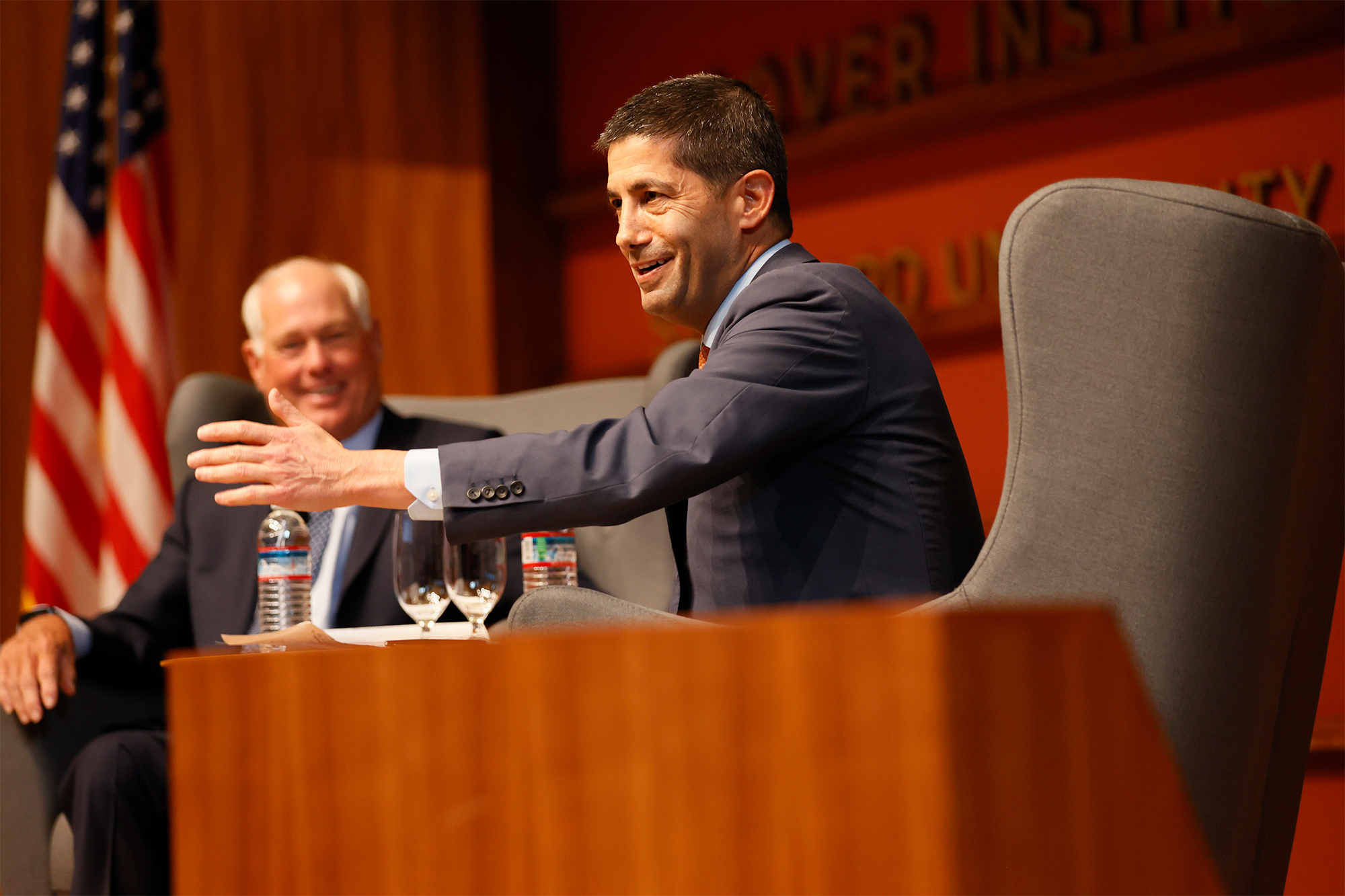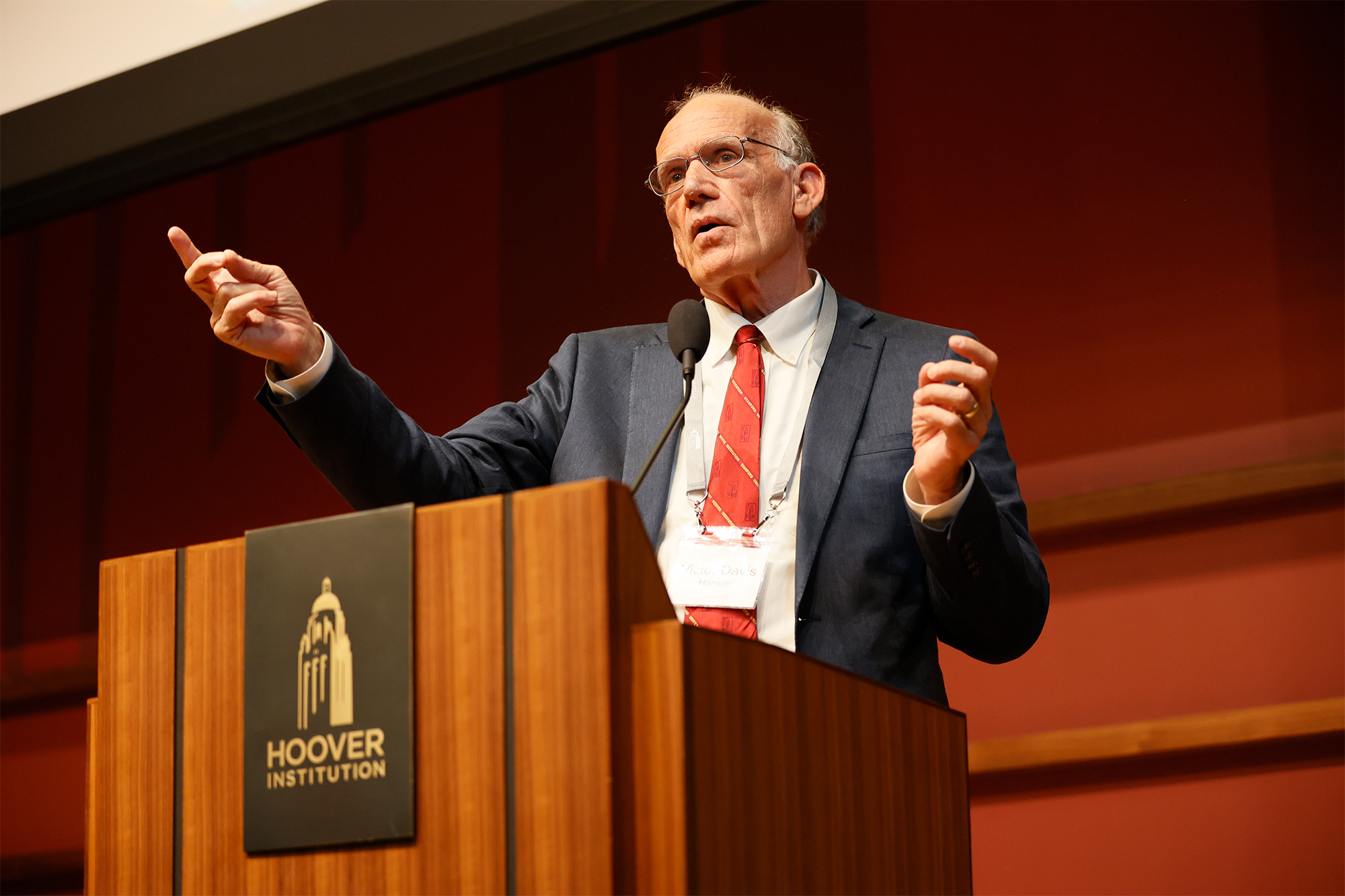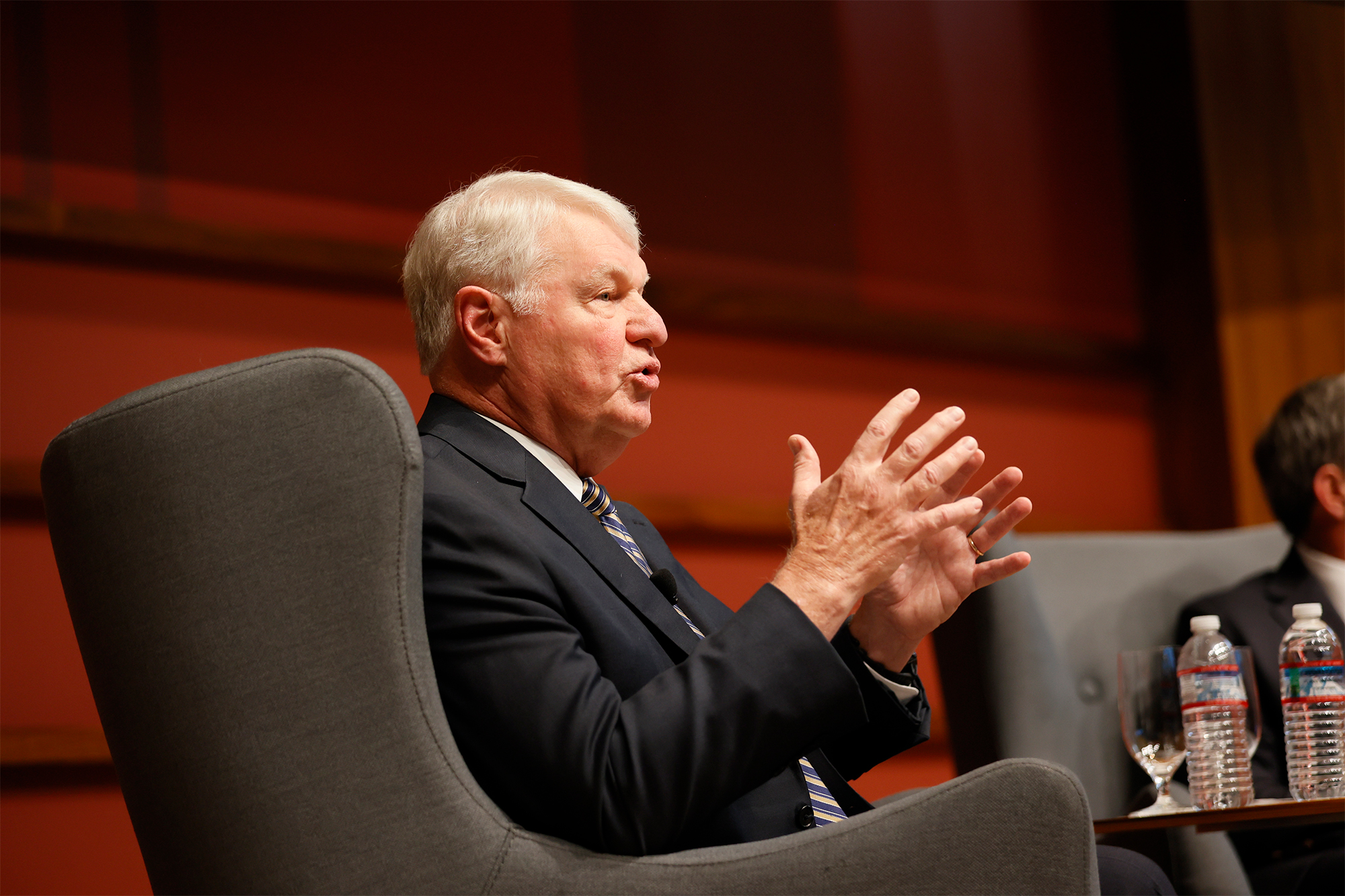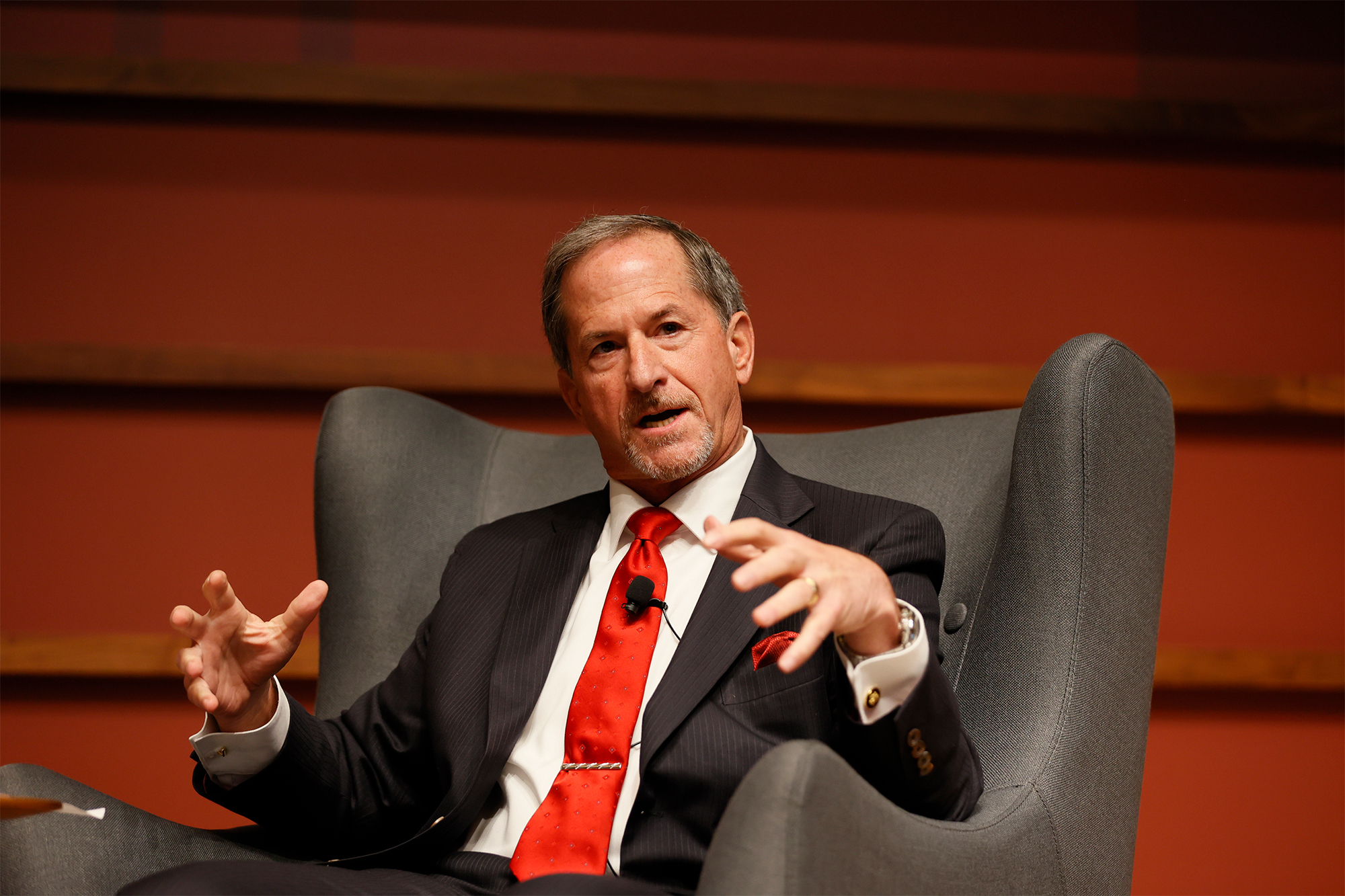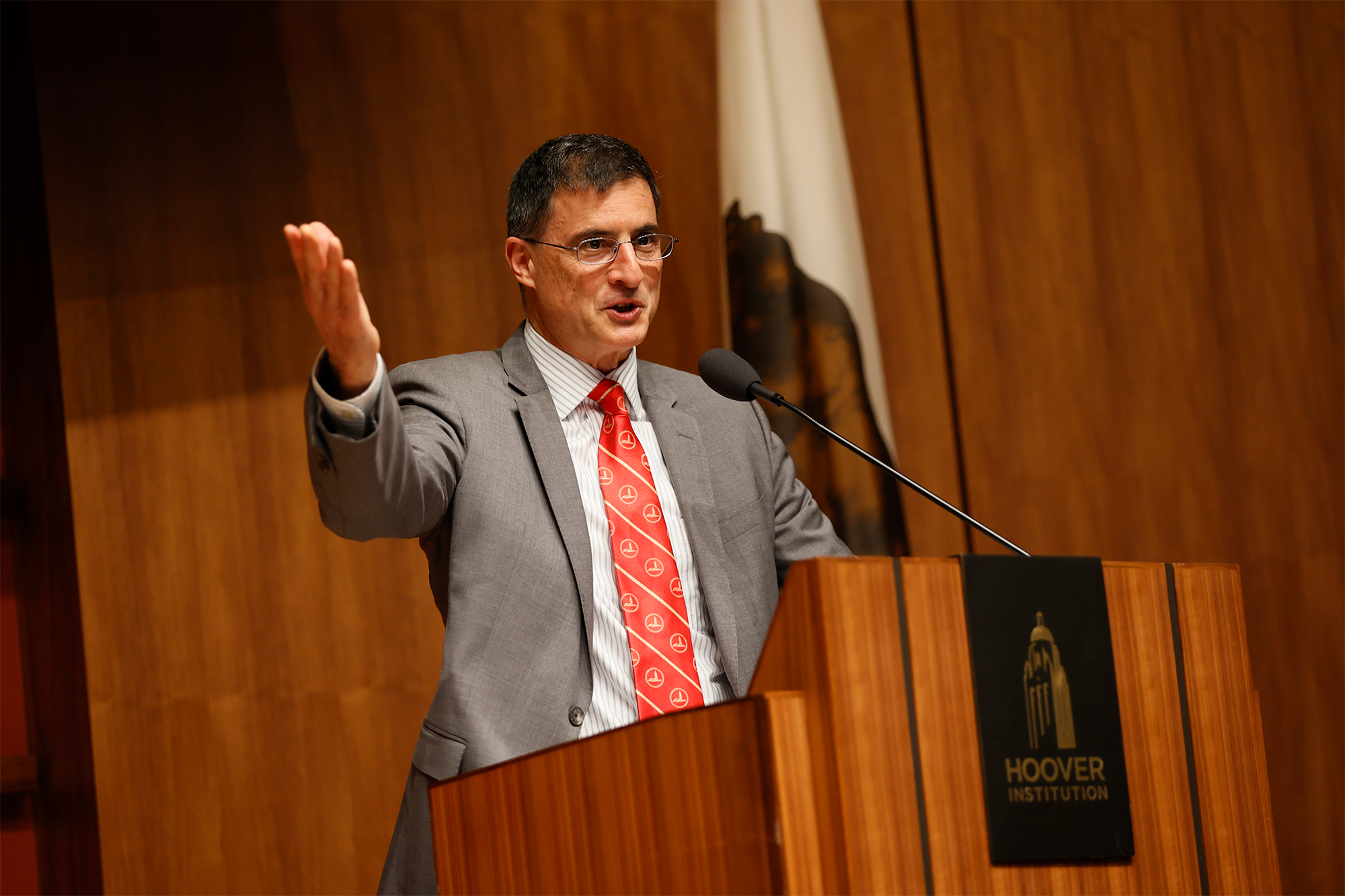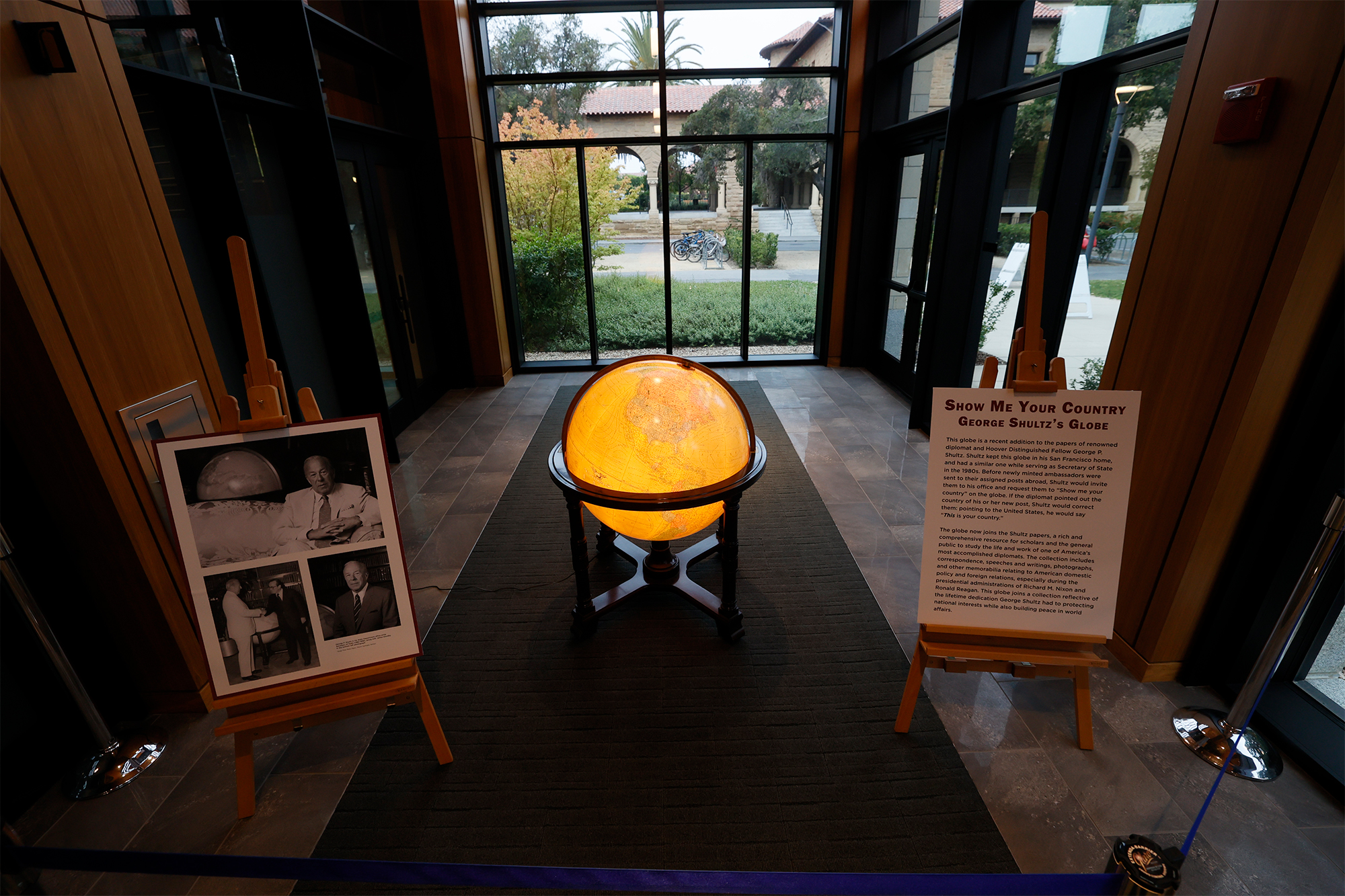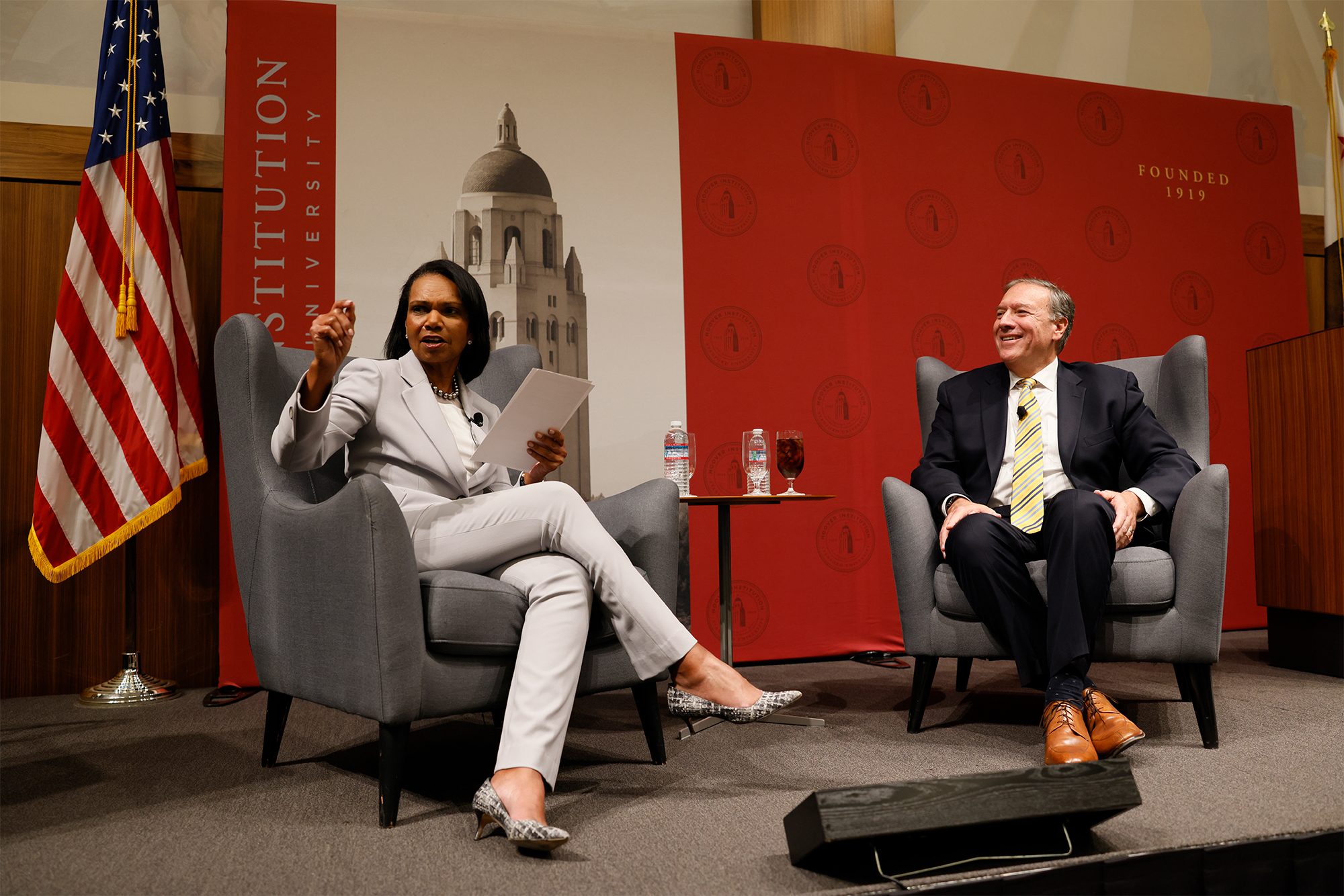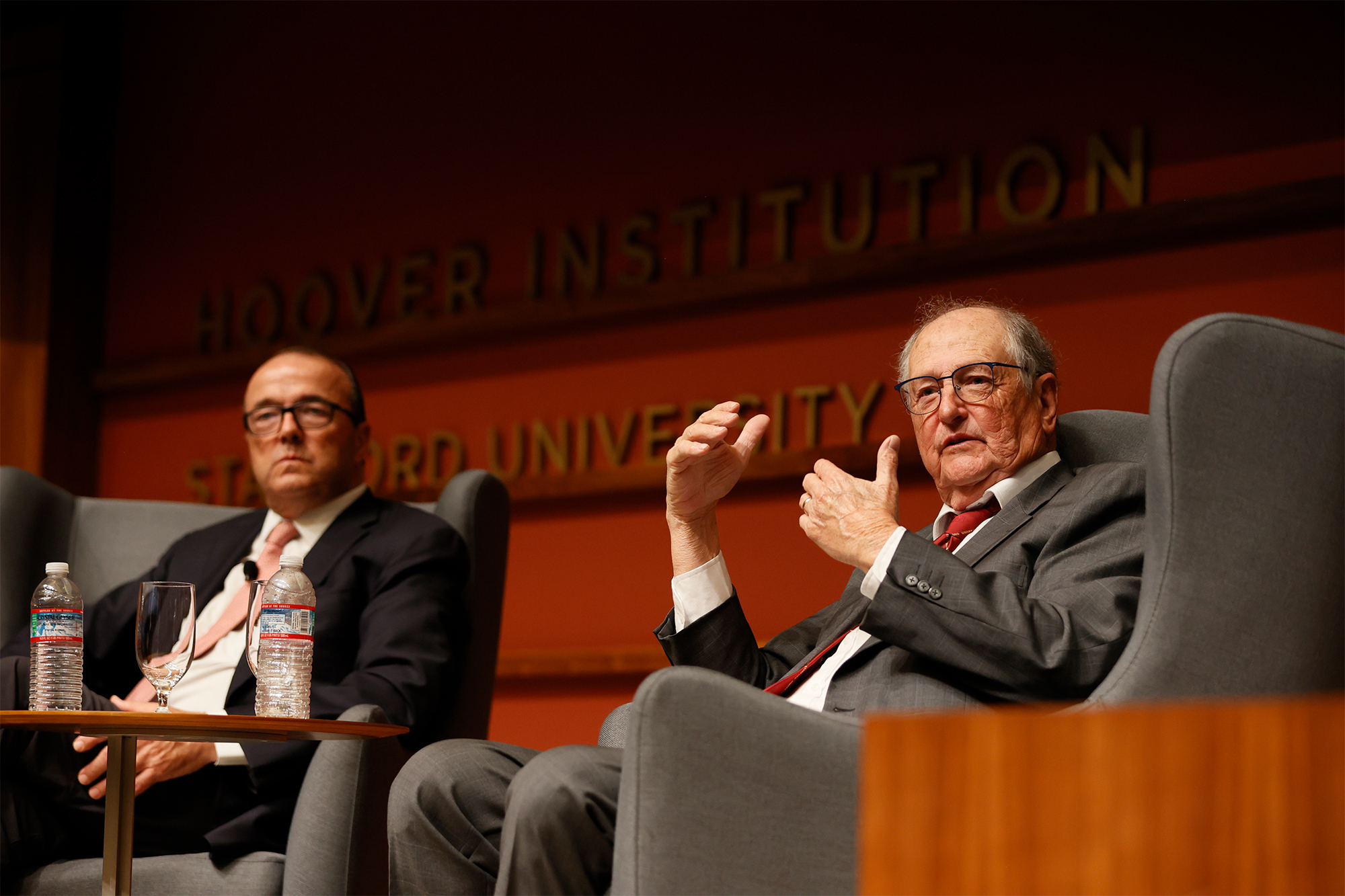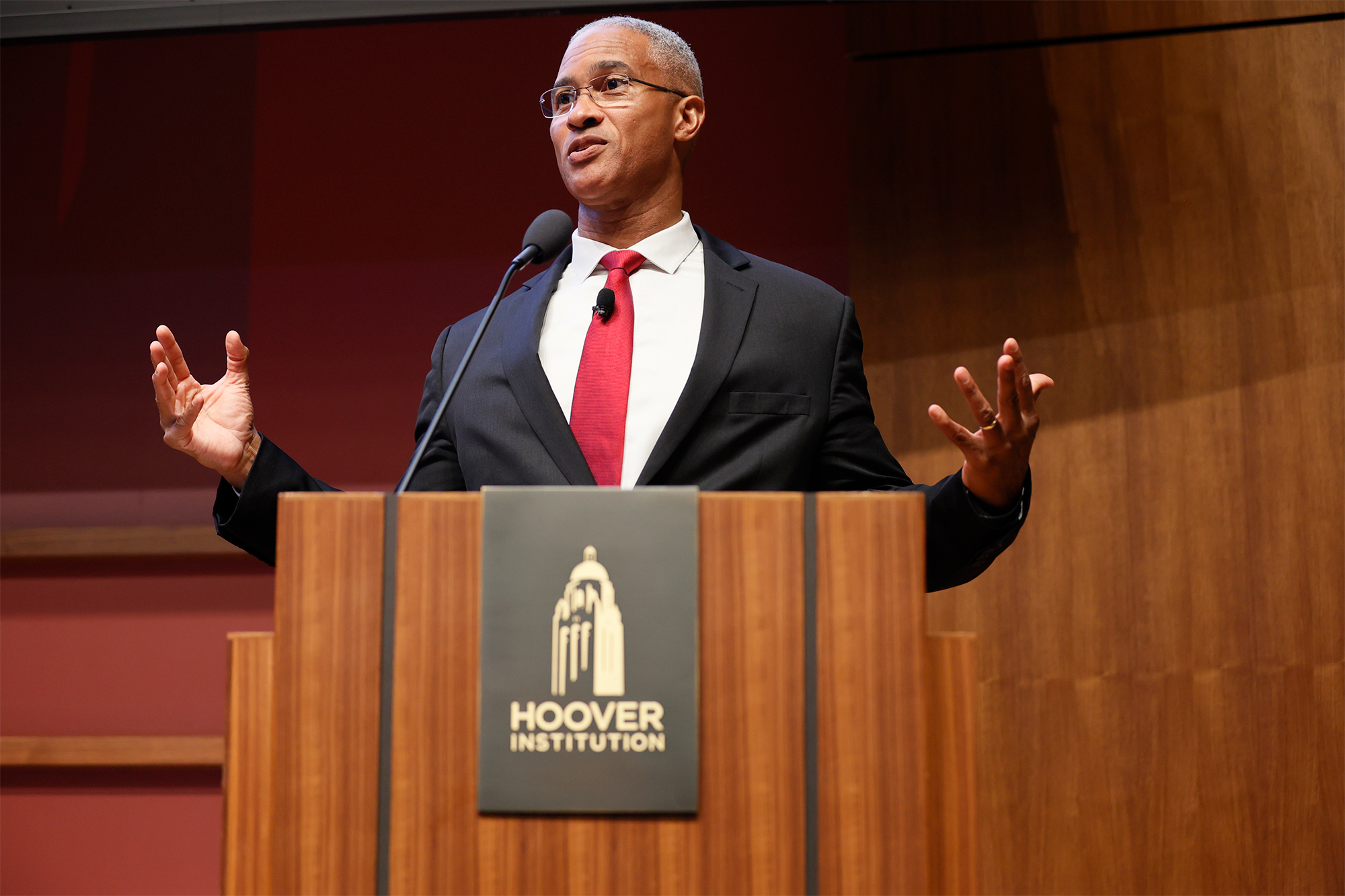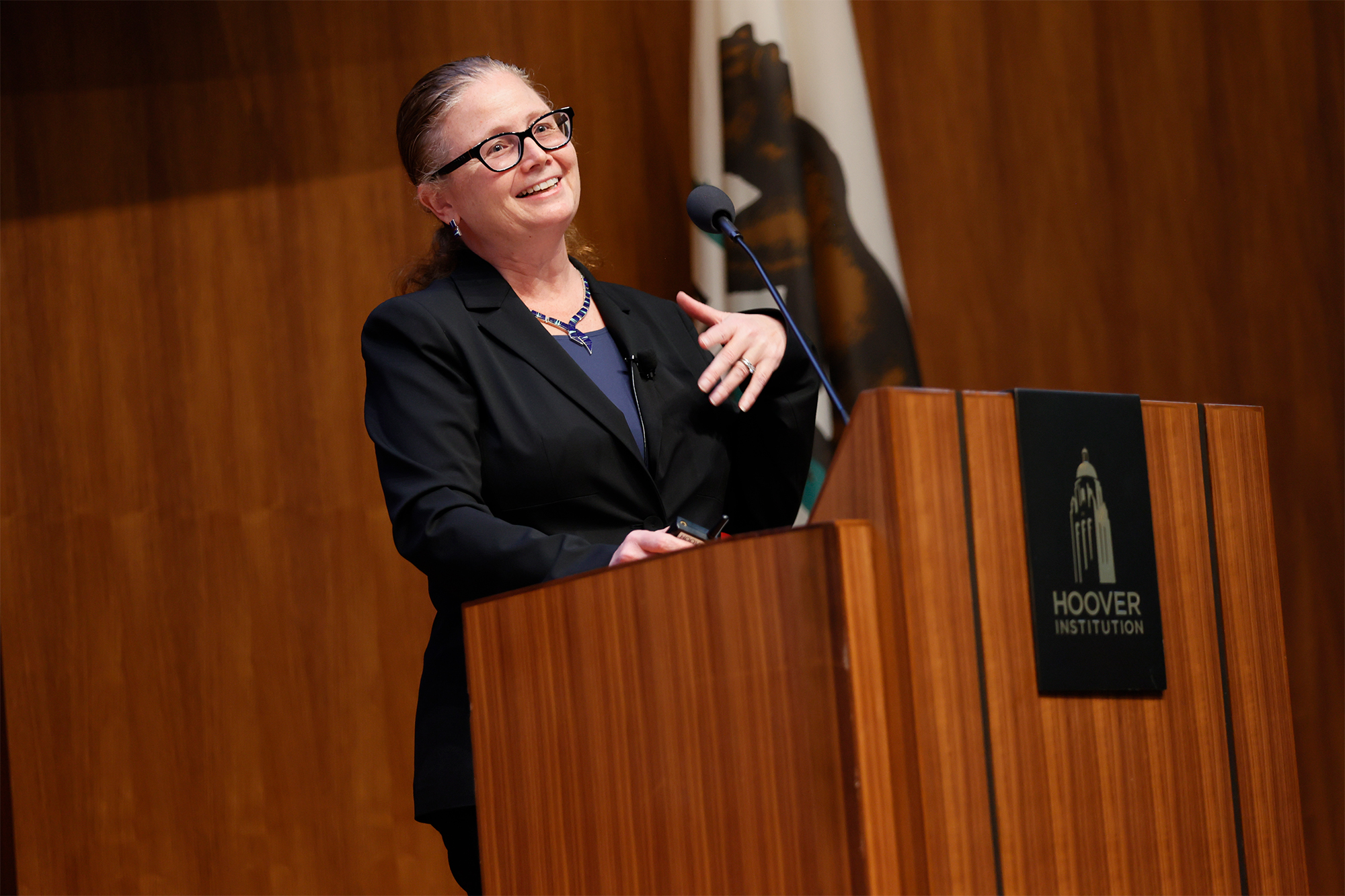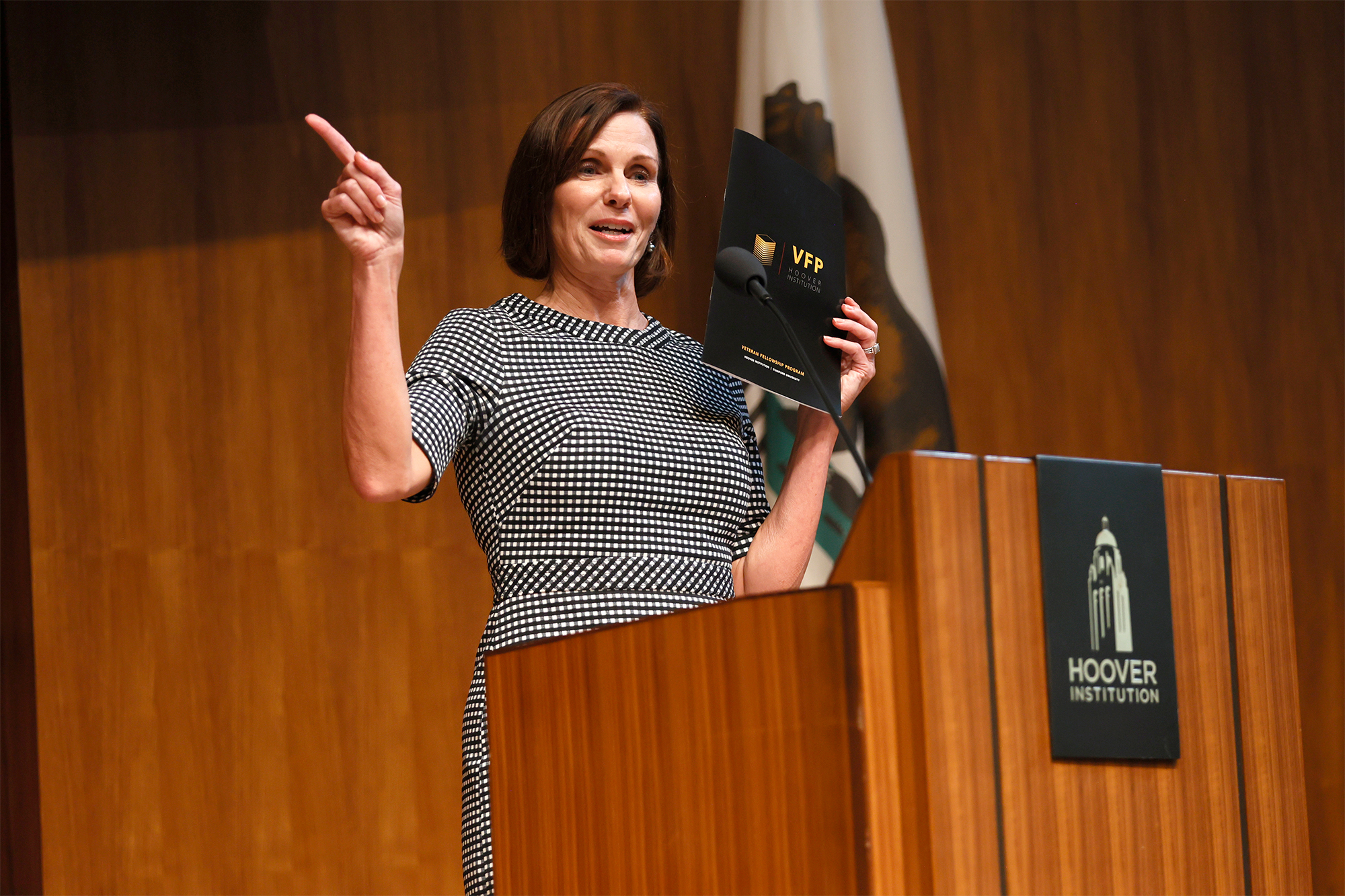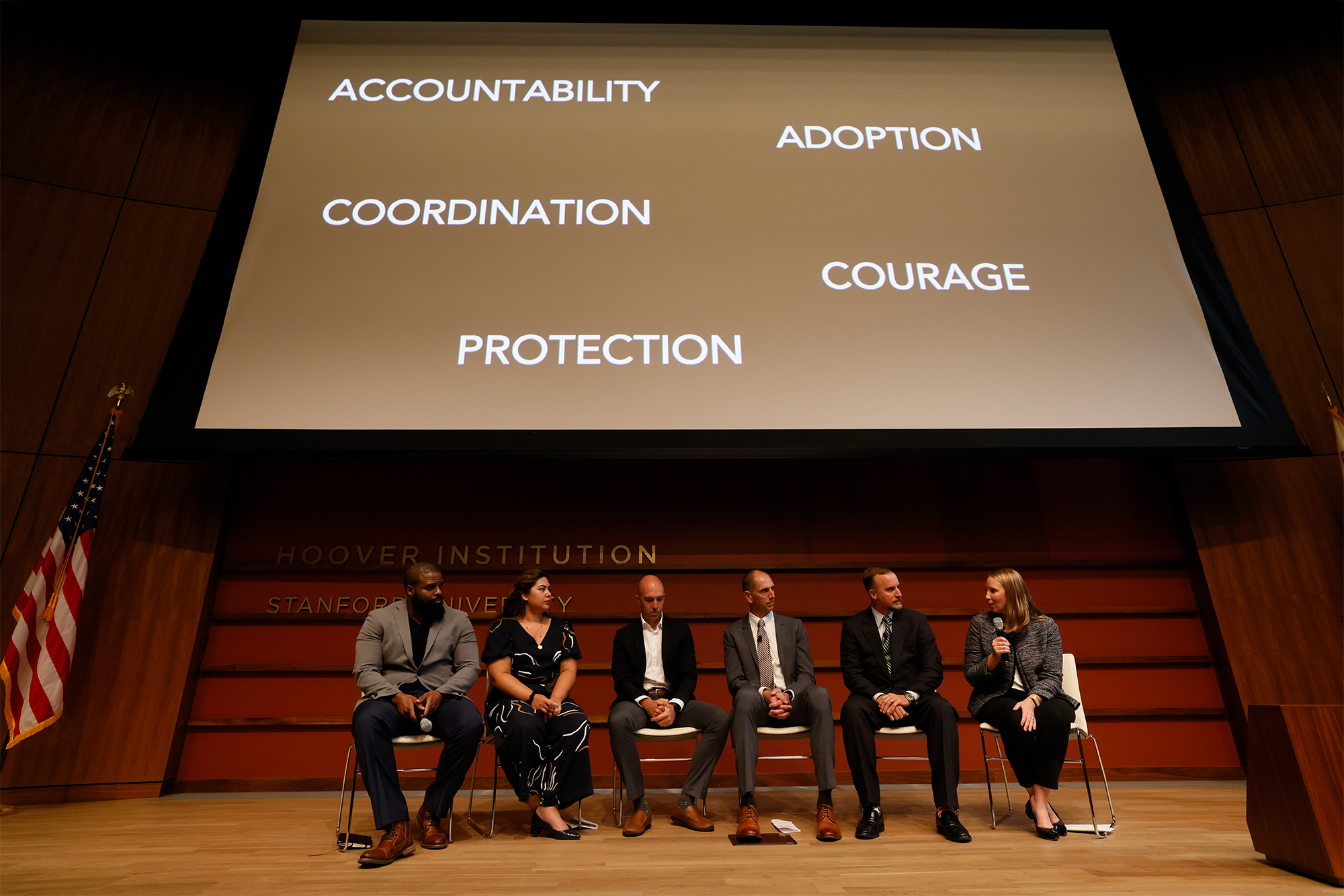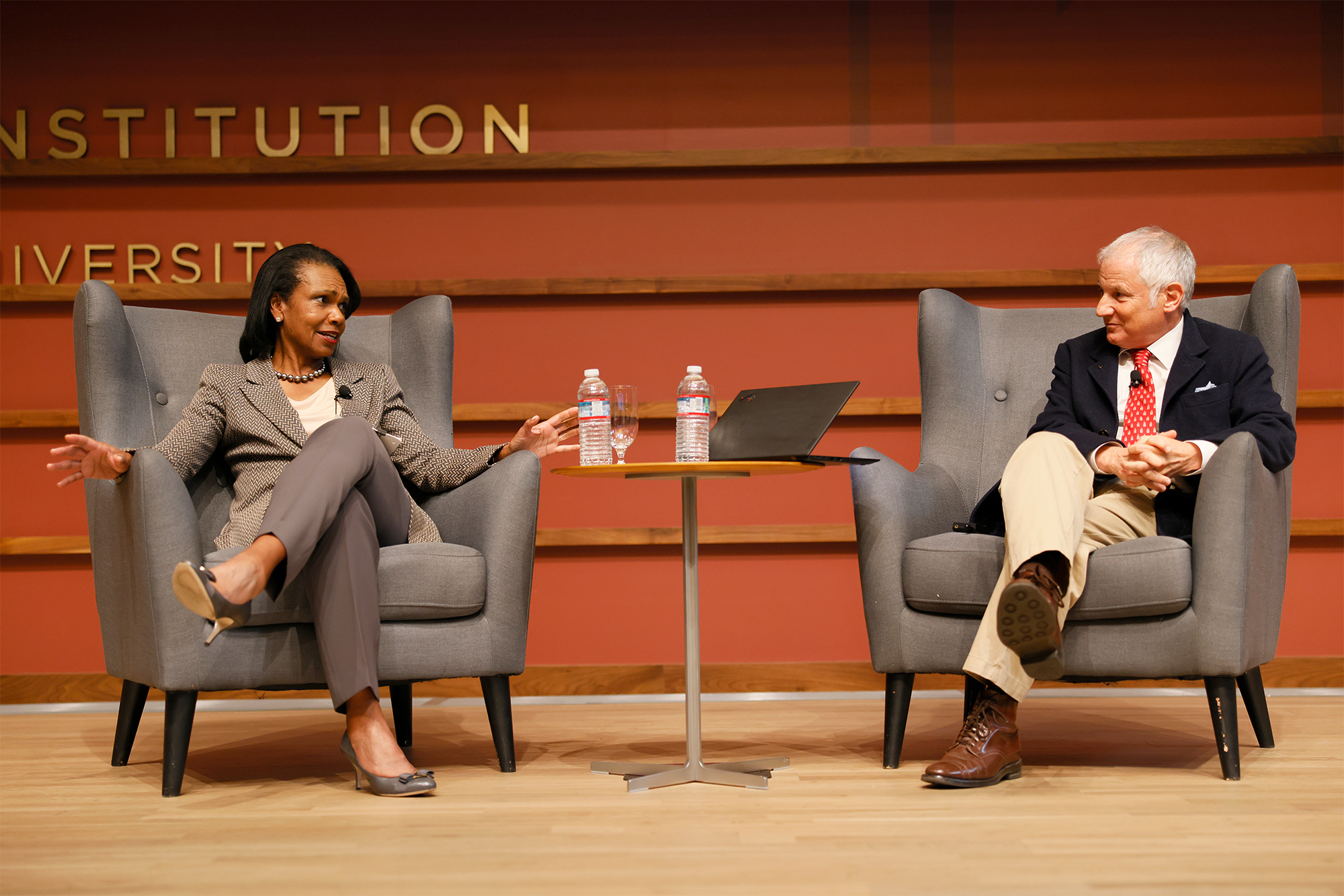Hoover Institution (Stanford, CA) – The Hoover Institution welcomed its Board of Overseers and supporters to the Stanford University campus for the Fall 2022 Retreat on Thursday, October 13, and Friday, October 14.
The two days of programs featured remarks from policy makers and scholars from the Hoover fellowship. Sessions included conversations on America’s complex economic and political challenges and the great power competition the nation faces from China and Russia. The retreat also highlighted the fellows’ latest research and newly launched Hoover initiatives.
Below are notable highlights of the retreat.
Reinvigorating Economic Governance
Leonard and Shirley Ely Senior Fellow John F. Cogan and Shepard Family Distinguished Visiting Fellow Kevin Warsh presented on their influential new essay, “Reinvigorating Economic Governance: Advancing a New Framework for American Prosperity.” The essay describes how America has been straying from its foundational principles of private property rights, limited government, and free and competitive markets, and has thus hampered sustained economic progress. This trend has been further exacerbated by “four great shocks” and the government’s response to each of them: the terrorist attacks of 9/11, the 2007–08 financial crisis, the COVID-19 pandemic, and Russia’s invasion of Ukraine. To revitalize America’s foundational principles, Cogan and Warsh advocate a rigorous policy framework that renews focus on what they refer to as the “three I’s: liberating the individual, encouraging new ideas, and ensuring the proper functioning of strong, faithful institutions.
Why Do Successful Societies Collapse?
Martin and Illie Anderson Senior Fellow Victor Davis Hanson described the factors that underlined the success of great civilizations throughout history and why some unraveled. He provided numerous examples, including centers of Greek civilization, Minoan Crete, Mycenae, and Periclean Athens, as well as the empires of Alexander the Great, Rome, and the Aztecs. He said the underlying features of those societies that thrived were constitutional government, the diffusion of knowledge, the promotion of free trade, a stable currency, and respect for private property. Under these conditions, societies were able to create surpluses of goods and resources for their populations.
A defining feature of societies that collapsed was centralized control of the economy. When control over production, particularly agriculture, was confined to the elite, the consequence was shortages of goods and resources. When the elite bureaucracy was decapitated by war or another form of crisis, the rest of society was left vulnerable in fending for itself. Hanson contended that these historical examples could help Americans better understand the struggles their nation is facing today. Hanson listed several challenges, including the consolidation of farmland (only 1 percent of Americans are farmers) and restrictions placed on the use of energy resources, as well as trade imbalances and unsustainable sovereign debt that put the nation in a situation of greater economic dependence and a weaker strategic footing in its interactions with the rest of the world.
China, Taiwan, and the United States: Perspectives on Military Deterrence
Robert and Marion Oster Distinguished Military Fellow Gary Roughead and Distinguished Visiting Fellow David Goldfein gave a presentation on the challenges America faces in the great power competition with China. Roughead described the People’s Liberation Army’s activity in the South China Sea and its ambitions to continue to shift the regional balance of power in East Asia in its favor. The retired Navy admiral said these developments are especially concerning for Taiwan and pose a challenge for US naval forces to establish a greater security presence in the region.
In this great power competition, Goldfein described the need for cooperation and knowledge exchange between the Department of Defense and hubs of the tech industry, such as Silicon Valley. The retired Air Force general also argued that US forces need to especially make investments toward obtaining a significant advantage in space capabilities. Regarding defense of Taiwan, Goldfein advocated that the United States support the island nation in a “porcupine strategy.” As explained by Annenberg Distinguished Visiting Fellows James Ellis and James Timbie, such an asymmetric defense “would leverage Taiwan’s natural advantages and exploit the vulnerabilities of the People’s Liberation Army.” Goldfein emphasized the need for Beijing to recognize that the costs would be exorbitantly high to attempt to reunify Taiwan by force.
Dinner Conversation Between Former Secretaries of State Condoleezza Rice and Michael R. Pompeo
During the dinner keynote presentation on October 13, Hoover Institution director Condoleezza Rice interviewed former secretary of state Mike Pompeo on a wide range of issues including the importance of building effective deterrence against Russia, China, and Iran. Pompeo argued that had the United States clearly established deterrence in defense of Ukraine, Russia would not have launched its special military operation in February.
Pompeo credited Fouad and Michelle Ajami Senior Fellow H. R. McMaster for identifying China as a strategic competitor in the December 2017 national security strategy he authored when he was national security adviser to President Trump. Pompeo also credited the Trump administration for placing restrictions on tech giant Huawei to prevent it from collecting data on American individuals and companies in support of the Chinese Communist Party’s espionage activities. The seventieth secretary of state lauded Iranians for protests against their theocratic government. However, he lamented that the Biden administration has weakened US deterrence and upset Arab Gulf allies through its reengagement with Iran’s leadership on the Joint Comprehensive Plan of Action.
Key Issues in the 2022 Midterm Elections
Davies Family Senior Fellow, Emeritus David Brady and former senior policy adviser to President George H. W. Bush Robert Grady examined the issues that are defining the campaigns for the 2022 midterm elections. Brady provided a quantitative analysis, explaining that the issues favoring Republicans (the biggest being inflation) resonate more with the public than those that advantage Democrats (abortion rights, health care, and climate change). Thus, Brady predicted that Democrats would defect from their party and support Republicans at a higher rate than vice versa. He explained that inflation is also currently the top issue for independents, many of whom he also expects to lean Republican in the midterms.
Grady relayed a series of conversations he had with leading Republican consultants about the state of the GOP and the implications of the midterms for the 2024 presidential election. The recommendations from the consultants were for the Republicans, should they attain majorities in the House, not to settle scores with Democrats by using the oversight function of Congress. Instead, they should focus on advancing constructive policy proposals that are salient to voters such as those that can curb inflation, expand energy resources, and reduce crime. In broadening their coalition, the GOP should maintain a consistent message of being pro-parent, pro-law enforcement, and pro-taxpayer. They should also evolve on cultural issues that appeal to Black, Hispanic, and Asian voters.
The Baker Hypothesis
The newly appointed Class of 1984 Senior Fellow Peter Blair Henry gave remarks centered on a 1985 speech given by James Baker in Seoul, South Korea, in which the then secretary of Treasury outlined reforms that low-income nations needed to make to boost economic growth. These growth strategies included trade liberalization, price stability, privatization, and greater openness to foreign investment. Referencing his own research, Henry noted that since the mid-1990s, those countries which adopted these reforms have experienced an acceleration of sustained economic growth, a rise in the standard of living, and single digit inflation.
The George P. Shultz Collection
Hoover Institution Library & Archives Director Eric Wakin (also the retreat’s master of ceremonies) gave remarks about the collection of the late Hoover Distinguished Fellow George P. Shultz, which was recently opened for researchers. Wakin described the rich nature of the collection, including documentation and photos detailing Shultz’s illustrious career as secretary of state. During the retreat, Library & Archives displayed Shultz’s world globe, which he kept in his San Francisco home and was a copy of the famous globe from his State Department office on which he would ask ambassadors representing America abroad to find their country (If the diplomat pointed out the country of his or her new post, Shultz would correct them by pointing to the United States and saying “This is your country.”). Wakin noted that an upcoming authorized biography of Shultz made substantial use of the collection. In the Nation’s Service: The Life and Times of George P. Shultz by Philip Taubman, will be published by Stanford University Press in January 2023.
Moving an Archive Past the Taliban and Out of Afghanistan
Alex Plitsas, US Army veteran and former defense intelligence officer, and ZabihUllah Rauf, executive vice president of the Human First Coalition, explained how they helped people escape Afghanistan during the collapse of the government and the army and the subsequent Taliban takeover of that country. In addition to this detailed logistical effort, Plitsas and Rauf described how they circumvented the Taliban to move a valuable historical archive out of Afghanistan to the United States, in a project that will see the materials shared between Hoover Library & Archives and Harvard University.
Policy Representation in the Contemporary United States
Brandice Canes-Wrone, newly appointed Maurice R. Greenberg Senior Fellow and director of the Hoover Center on the Revitalization of American Institutions, gave a presentation on policy representation in the contemporary United States. She explained that the influence of society’s affluent is overstated in discussions about US politics. Despite widespread lack of trust in political institutions and deepening polarization, elected officials have been largely responsive to their constituencies, she explained.
Capstone Highlights: Hoover’s Inaugural Veteran Fellowship Class of 2021–22
Members of the inaugural class of the Hoover Veteran Fellowship Program presented their capstone projects, which are intended to provide useful policy solutions to challenges in their respective communities. Featured capstones included Megan Andros (US Army) on strengthening federal standards for networks of health and human services providers; Donnie Hasseltine (US Marine Corps) and Dave Winnacker (US Marine Corps) on reducing the risk of wildfires and expanding fire insurance coverage in California; Nick Mastronardi (US Air Force) on developing data-driven systems for local governments aimed at improving accountability and policy outcomes; Mary Kate Soliva (US Army) on combating human trafficking in her native Guam; and “Iron” Mike Steadman (US Marine Corps) on helping inner city youth—through a planned educational center co-located at his boxing gym in Newark, New Jersey—build the confidence and acquire the knowledge and skills to become successful entrepreneurs.
A Course Preview: PoliSci 216 – Global Futures: History, Statecraft, Systems
At the conclusion of the retreat, newly appointed Kleinheinz Senior Fellow Stephen Kotkin talked with Condoleezza Rice about the newly formed Hoover History Lab (to be directed by Kotkin). In the spirit of revitalizing the study of history in America, it will support teaching, research, and conferences in person at Stanford University, across online platforms, and in partnership with private sector and K–12 education providers. In alignment with the lab’s mission, Kotkin and Rice described the curriculum of a new Stanford undergraduate course that they will co-teach, Global Futures: History, Statecraft, Systems. The course will examine the key movements, ideas, and principles that have built the modern world and will be centered on informing generations of leaders on the formulation of sound public policy making.







